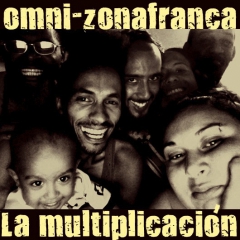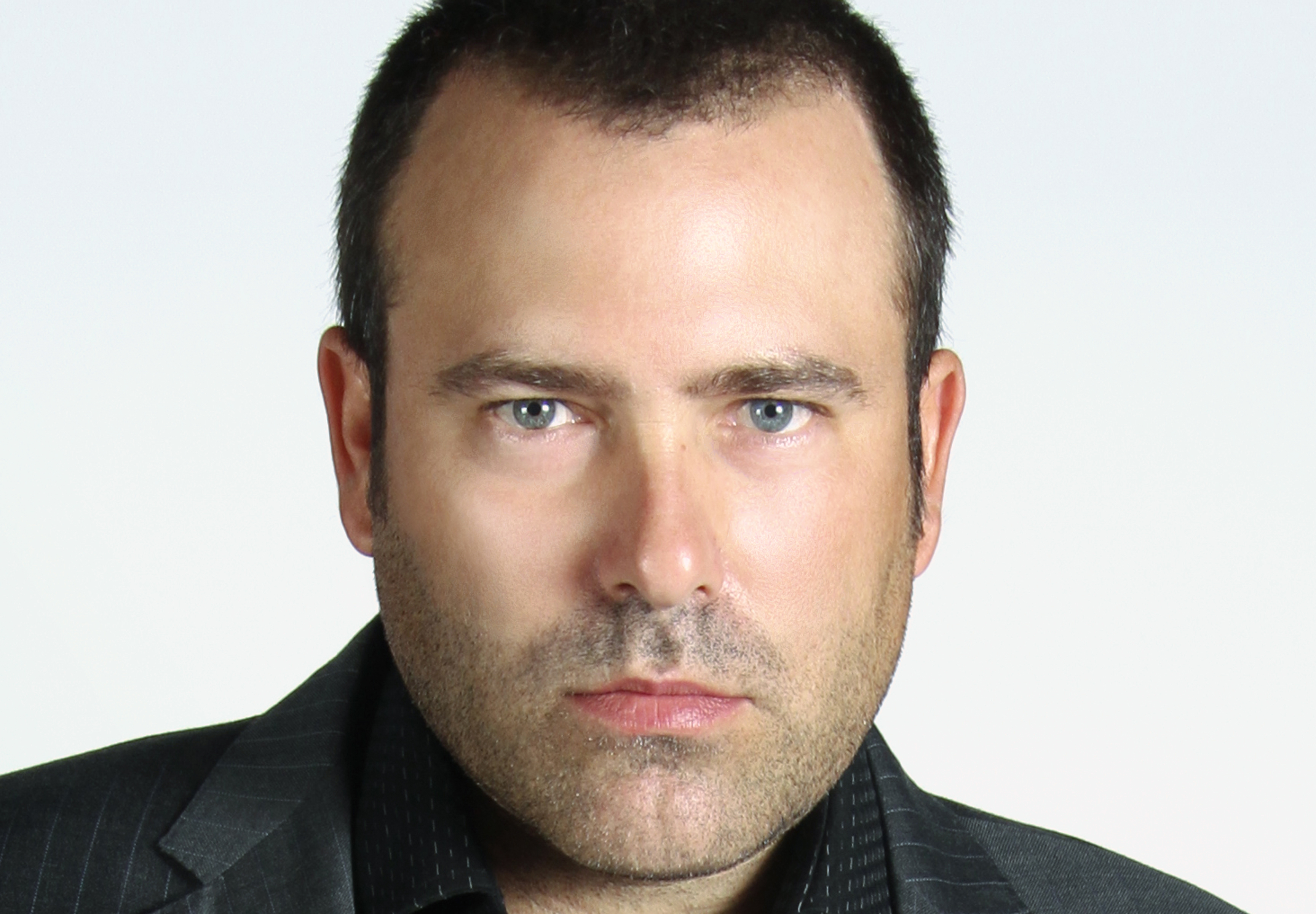
It all started with a phone call. “Did you see the Jaime Bayly program?” a familiar voice kept asking. “I never watch the Jaime Bayly program,” I answered. The voice on the phone shot back, confident, “Then find the interview he just did with Tony Cortez. I need you to see that and give me your opinion.”
The tone was dry. He was upset. My friend did see the Peruvian Bayly often, I think he admired him. I thought, “What has Tony Cortez done.” Twenty minutes later, overwhelmed by the interview I had just seen on the Internet, I chose not to call back. I wanted to avoid having to give an opinion yet.
For about fifteen minutes Jaime Bayly mercilessly thrashed Tony Cortes who arrived on set as host of “On My Steps: Special Edition”, and who had obviously been caught by surprise by the onslaught. He tried to stay calm, to not lose his television mile, while his interviewer was piling on, one by one, words like “communist,” “Castro’s manipulative agent.” He barely allowed him to defend himself.
What was Jaime Bayly’s main accusation? That the films made by Tony Cortés in Cuba for the series “On my steps” would have been possible only with the consent of the State Security. And in this case, the actor and TV presenter would be little more than a transmitter of the Cuban government interests.
For fifteen minutes a gasping Tony Cortes tried to defend himself from the stigma. He failed. Even literally kneeling in front of his interviewer.
That night was August 17, 2011. Less than two months later, on October 12, Leonila (Nila) Hernandez, wife of Tony Cortez and mother of his two children, was locked in a dungeon of Villa Marista, State Security’s prison in Cuba. She had traveled to the island, states the actor, for purely family reasons and a few hours after stepping on Cuban soil the political police confined her to a dungeon.
The repulsive sensation I felt at seeing the interview of Jaime Bayly that night, had its explanation after the fact: I understood the day I learned of the arrest of Nila Hernandez, now case 53 of 2011, on charges of “illicit economic activity” and “dissemination of false news that threatens international peace.”
Following the steps of this family tragedy in reverse led me, inevitably, to a television channel, a night interview, and two journalists, Jaime Bayly and Tony Cortez, who that night played out a scene that is sad to remember.
– Tony, was this the first time you’d been invited to the Jaime Bayly program? Whose idea was this interview?
Mr. Bayly and his team had made couple of previous proposals for me to be the guest of the program at ten at night. We discussed the invitation several times with the team of my program, whether or not it was a good idea, mostly because of the workload I had at that time.
Finally I spoke with the management of Mega TV, and they believed it would be a good idea for me to be interviewed by Bayly, in part because of the considerable attention focused on my series “On my Steps,” which had just been nominated for an Emmy.
I remember the executive producer of my program did not agree that I should grant him that interview to Jaime Bayly, however I saw nothing wrong with that: we were part of a team, the same television, our programs were separated by just an hour, well …
There is even a memo from the SBS corporation that says explicitly that the hosts of both radio and television could not attack each other, on the assumption that we are all part of a working family.
As you can understand, nothing could have made me think of what happened that night.
– Was there some pattern, did they give you a topic with respect to where the interview with Jaime Bayly would be going?
No, not at all. I didn’t even know beforehand that it would be a controversial interview, which would have repercussions, because of the nature of the interviewer, of whom I was always a confessed admirer and whose work I respected very much.
I was thinking about an interview that also had some controversy might be nice, even arriving with a golf club to reinforce that idea. And my surprise was great when the interviewer turned the attack against me, against my work, a direct accusation with something as sensitive as it is to be called a Communist and spy for the Cuban government.
Jaime Bayly not only lacked basic ethics with such accusations, completely unfounded in reality which he is completely unaware of, but apparently did not need my arguments: he would not let me speak. It was the interview where the interviewer does not want to hear the interviewee.
– What happened after you left the program that night? What was your position, that of your interviewer, and the managers of the channel?
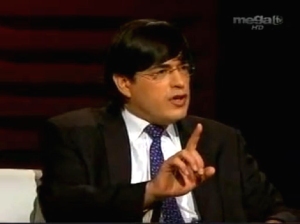 Look, at that very moment my wife was with me and she said to Jaime Bayly, “You shouldn’t make a judgment if you haven’t seen the whole series. We can send it to you.” He responded that he would watch it with pleasure. And just then he turned to other people, right in front of us, and said, “Others who stopped being my friends…” Nila turned to him and said, “And others whom we have stopped admiring.”
Look, at that very moment my wife was with me and she said to Jaime Bayly, “You shouldn’t make a judgment if you haven’t seen the whole series. We can send it to you.” He responded that he would watch it with pleasure. And just then he turned to other people, right in front of us, and said, “Others who stopped being my friends…” Nila turned to him and said, “And others whom we have stopped admiring.”
“That’s your choice,” was the last answer of Jaime Bayly.
We of course were left with a very bad taste from that interview. However, it would be much worse after that day, because with the approval of MegaTV management, Jaime Bayly unleashed a constant, daily campaign, of libel, personal attacks, ridicule against me.
I say with the approval of the management because on several occasions I met with executives Miguel Ferro and Alexis Ardines, I told them they should stop that, that these were no longer jokes but serious accusations, and the only response I got from them was, “First, make a plan to respond with what Bayly did not see your series. And second, you should also begin to attack him.”
I remember them telling me, for example, ideas for these attacks: “If you record in Peru, interview people who will talk about the position of Jaime Bayly relative to Keiko Fujimori and Ollanta Humala. Let’s put out there what people in your country think about it, and it would be good to put it on at eight in the evening.”
And you know what? While I was in Lima recording “The Forgotten of Peru,” I asked some questions, I recorded a few people who had nothing good to say about Jaime Bayly … But at some point I stopped myself. I found it very counterproductive, I thought that was not me, I’m not attacking anyone. In fact there are some e-mails between management and myself with regards to that, where I refused to spend my program on this kind of war with Jaime Bayly.
From there my relationship with Mega TV began to seriously deteriorate. Not only because they did nothing about my complaints about the interview, but because they gave the green light to the rest of allusions about me personally in Jaime Bayly’s program, where I was accused (and even today he continues to accuse me) of being a spy and a Communist.
Even I complained because I felt that was exacerbating the agents of hatred against me, it was inciting any crazy to initiate an attack against me under this principle that I worked for the Cuban regime.
MegaTV allowed this to grow. That joke was growing. And I am convinced that both the interview by Jaime Bayly, such as the absurdities about the alleged “agent Tony Cortez” who could go in and out of Cuba freely, influence the Cuban regime to make a decision to take on my family.
– But the question is valid, Tony. How can you come and go so freely, you can film, and you did that three times under the noses of Cuban security? How do you explain your “luck”?
I do not call it luck, I just think that I was protected by God, for what I believe…
– So you were an elect of God? A superior body allowed you to do in Cuba what is not permitted to the rest, to enter and shoot freely?
No, not so, I’ll tell you something: my first series was not antagonistic. It was just a reunion with a Cuban with his Island. Like so many people have gone and have recorded their return to the beach, their parents, their neighborhood. That was my first series.
And if the State Security followed me, they noticed these were conversations with people in the neighborhood, with my family, dialogues between Cubans living a very complex reality.
The second series I think took the regime by surprise. The cameraman entered in one part of Cuba, and I in another. And this is good to clarify because some are speculating about it too: in “On My Steps” there no was a super-production or anything like that, we were just a cameraman and me.
By this second trip I did have a more extensive review in my luggage. I did carry the camera or the cassettes. They didn’t find anything on my so I had no problems leaving.
In the third and last trip I was able to record very little, I knew they were watching me too much, and the pictures I took I still kept back, they have not been disclosed. It is a series on the hospitals in Cuba. I was detained for 6 hours at the airport when entering and on leaving two hours. Then they cancelled my passport. Endpoint.
So what I want you to understand is that they let me in because it was an opening move, apparently more freedoms, and perhaps they thought I was harmless. When they realized that my films went beyond what suited them, they shut the doors.
– At what point and why were you dismissed by MegaTV?
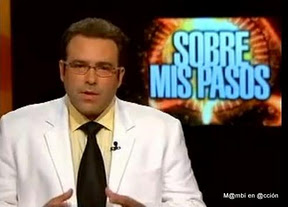 The cancellation of my program at eight in the evening was disconcerting, and I don’t want to ignore that. For me it’s an antecedent to consider.
The cancellation of my program at eight in the evening was disconcerting, and I don’t want to ignore that. For me it’s an antecedent to consider.
MegaTV ended my contract as a host of the show, “On my Steps. Special Edition” after we expanded the series to film in Ecuador, showing how Cubans were living there. This was quite popular among the public.
The exclusive interviews that Sara Marta Fonseca granted me also came out, interviews no other television station had, as did my exclusive interview with Ignacio Estrada and Wendy Iriepa.
I had heard that it was precisely my insistence on the Cuban issue that began to generate a certain heat with the management of the channel, which for some reason it seemed didn’t think this was important.
The last Monday of my program was the opponent Sara Marta Fonseca was released, we did a special program that had excellent ratings. I even have an e-mail congratulation on the part of the same management. And the very next day, the show’s producer told me that on Wednesday they would have a meeting with me.
At that meeting, Mr. José Pérez gave me the letter canceling my contract. Without any arguments.
So you can see to what extent there was an inexplicable urgency, ugly, that I leave MegaTV, the program that I recorded that Wednesday was repeated on Thursday and Friday. I was not allowed even a live farewell, as they did for example with Maria Elvira Salazar.
– Finally: after the imprisonment of your wife on October 12, have you had any contact with the same MegaTV managers, with Jaime Bayly? Have you heard what they have to say about what is happening with your wife?
No, no direct contact. MegaTV in a very suspicious and hasty way published a statement signed by Manuel Ferro, whose purpose was twofold: first to question the veracity of the arrest of my wife, and secondly to say their hands were clean, to claim that this broadcaster had nothing to do with this, since at the time of the arrest I was not part of the channel. For me this is nothing more than a servile and cowardly act.
And Jaime Bayly, always under the leadership of MegaTV, of Albert Rodriguez, Jose Perez, Alexis Ardines and Michael Ferro, he has not only not stopped the attacks and ridicule that is not only a provocation for me, but he strikes at the sensitivity of some children who are suffering the imprisonment of their mother in Cuba.
With the confirmation that Nila was incommunicado in Villa Marista, living God knows what torments, Jaime Bayly said in a program that my wife was vacationing in a very dark place in Havana. Almost daily he used my name to call me a double agent, according to him a spy for both Cuba and the United States.
I can never prove the responsibility of the broadcaster for what is now happening to my family. But I will always argue that the constant incitement by a well-known host, the challenge to state security, public questions about why they didn’t put me in jail, why they let me circumvent Cuban intelligence, all that is very very closely tied to this tragedy that my family lives today and that, fortunately for them, Jaime Bayly nor any of the directors of Mega TV are suffering.
Translator’s note: A couple of weeks after this post was posted, Tony Cortes’s wife Nila was released from prison in Cuba and returned to the United States, after being held in Cuba for approximately 6 weeks.
November 7 2011


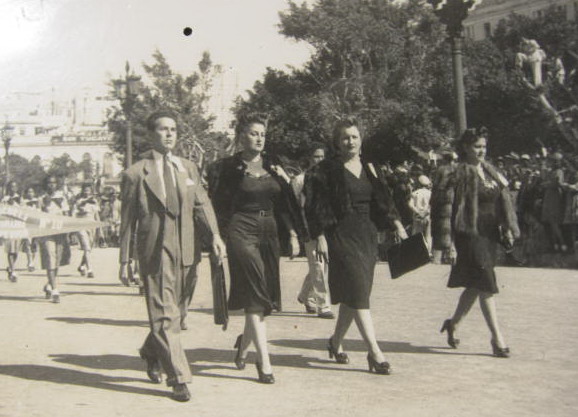
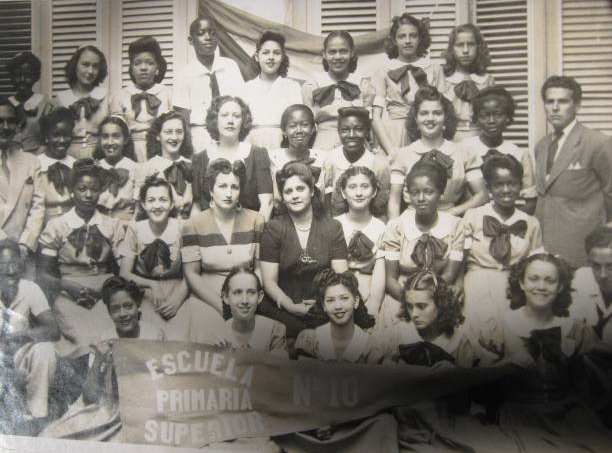
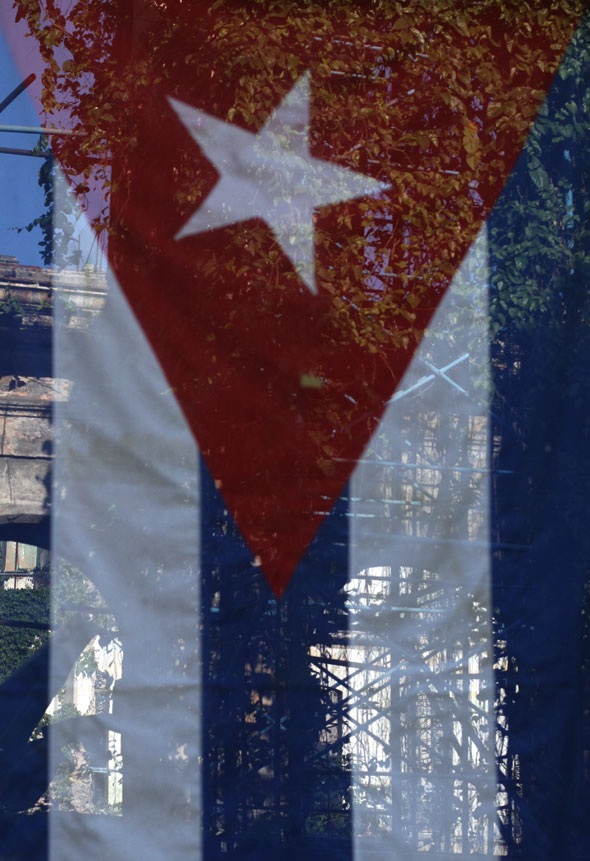

 Look, at that very moment my wife was with me and she said to Jaime Bayly, “You shouldn’t make a judgment if you haven’t seen the whole series. We can send it to you.” He responded that he would watch it with pleasure. And just then he turned to other people, right in front of us, and said, “Others who stopped being my friends…” Nila turned to him and said, “And others whom we have stopped admiring.”
Look, at that very moment my wife was with me and she said to Jaime Bayly, “You shouldn’t make a judgment if you haven’t seen the whole series. We can send it to you.” He responded that he would watch it with pleasure. And just then he turned to other people, right in front of us, and said, “Others who stopped being my friends…” Nila turned to him and said, “And others whom we have stopped admiring.” The cancellation of my program at eight in the evening was disconcerting, and I don’t want to ignore that. For me it’s an antecedent to consider.
The cancellation of my program at eight in the evening was disconcerting, and I don’t want to ignore that. For me it’s an antecedent to consider.









![Yoaxix Marcheco_dibujo_[1] (2)](https://translatingcuba.com/wp-content/uploads/2012/03/Yoaxix-Marcheco_dibujo_1-2.jpg)

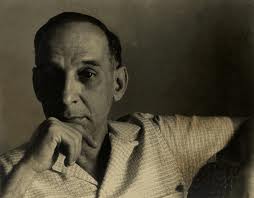


 For many years March 8, International Women’s Day, meant for many of us the opportunity to conclude out work duties before the official time and the promise of a little party in the workplace. On leaving home, in the bus, or arriving anywhere, one offered a Congratulations! half formal, half authentic.
For many years March 8, International Women’s Day, meant for many of us the opportunity to conclude out work duties before the official time and the promise of a little party in the workplace. On leaving home, in the bus, or arriving anywhere, one offered a Congratulations! half formal, half authentic.
